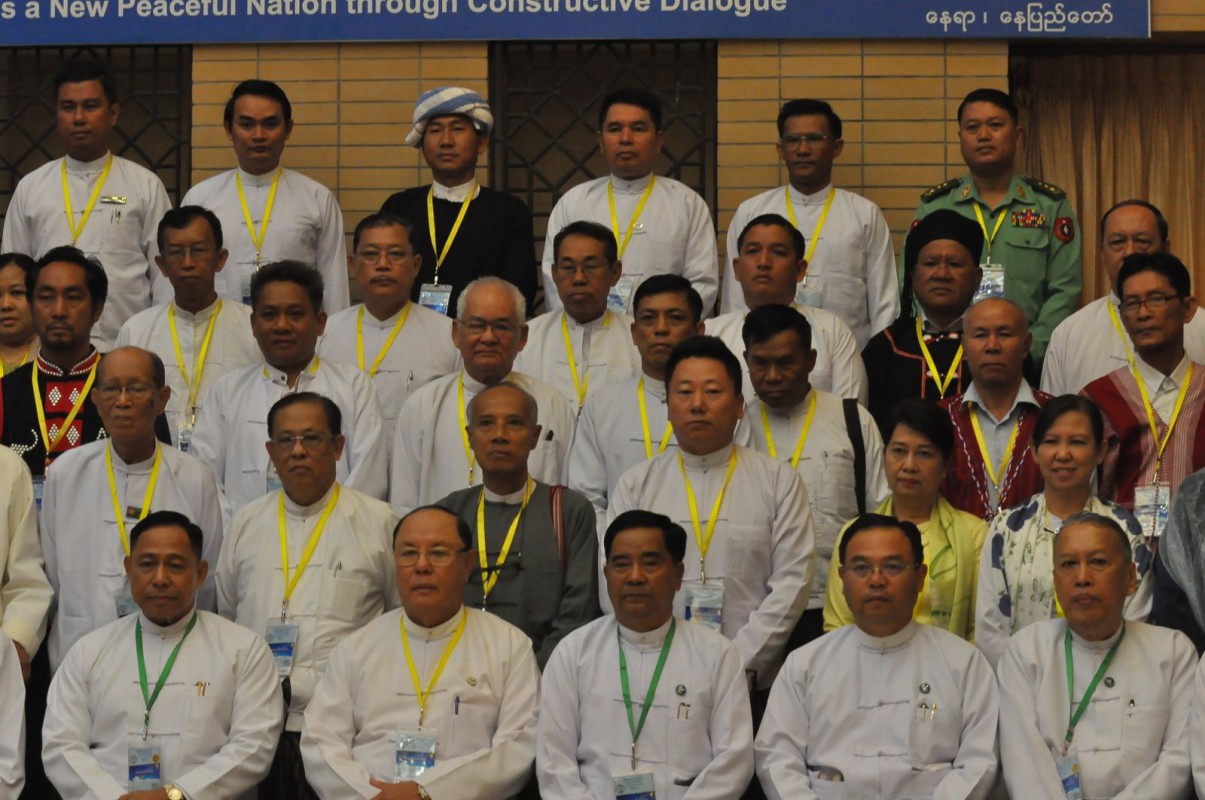Over 20 recommendationsrevealed by Peace Talk 2025 forGovernment to-do-list

434

Phyo/ Htet Nadi (NP News) - March 30
The Peace Talk 2025 was held at the National Solidarity and Peacemaking Centre in Naypyidaw from March 24 to March 26.
A total of 118 representatives participated in the talk, including members of the National Solidarity and Peacemaking Negotiation Committee (NSPNC), senior military officials, representatives from the Joint Monitoring Committee (JMC), political party delegates, representatives from ethnic armed groups that have signed the Nationwide Ceasefire Agreement (NCA), individuals actively engaged in the peace process, experts, media representatives, and officials from various ministries, universities, and associations.
The three-day Peace Talk 2025 conference yielded 12 recommendations for short-term action and ten long-term action plans.
Short-term recommendations involve: 1. Implementing the ceasefire process; 2. Reviving institutions based on the NCA, such as the Union-level Joint Ceasefire Monitoring Committee (JMC) and Union Peace Dialogue Joint Committee (UPDJC);
3. Initiating the NCA Review and Modification process;
4. Implementing regional pilot projects to provide humanitarian assistance, education, and healthcare as much as possible;
5. Establishing a good governance system and fostering trust between the government and the public;
6. Implementing points from the Union Accord;
7. Making preparations in advance to ensure the smooth continuation of the peace process;
8. Involving third-party mediators;
9. Carrying out political reforms carefully and initiating a comprehensive, inclusive peace process;
10. Enacting effective laws to ensure the security of elections, in coordination with local communities and stakeholders;
11. Engaging in discussions with stakeholders in advance for the establishment of electoral constituencies and electoral laws;
12. Organizing conferences or discussions prior to the elections to provide a platform for further political dialogue.
Recommendations for the long-term plans involve:
1. Discussions on constitutional amendments should be begun already before the parliamentary bodies convene and they should continue once the parliament is formed after the elections.
2. For long-lasting peace, to have a widespread knowledge sharing about peace processes among the people.
3. Efforts should be made to collaborate with the media and civil society organizations through the NSPNC.
4. Development projects in border regions should be prioritized to build trust between the people and the government to improve confidence.
5. While maintaining an active foreign policy, it is essential to enhance relations with neighboring countries and regional countries for peace, and also to maintain continuous relationships with major global powers (such as the United States and Russia) in global affairs.
6. Since political power, economic power, military power, and the AI power have all gained influence in today era, it is necessary to plan ahead to strengthen these sectors.
7. As Non-Traditional Challenges are emerging in the world today, long-term plans should be developed and implemented, especially regarding Cyber Security (for example, dealing with issues such as telecom scams in the current context).
8. Long-term plans for Resettlement, Recovery, and Redevelopment should be established and executed.
9. Special attention should be given to enabling the participation of youth and women in the peace process.
10. Physical and psychological reconstruction efforts should be carried out for the people in conflict-affected areas.